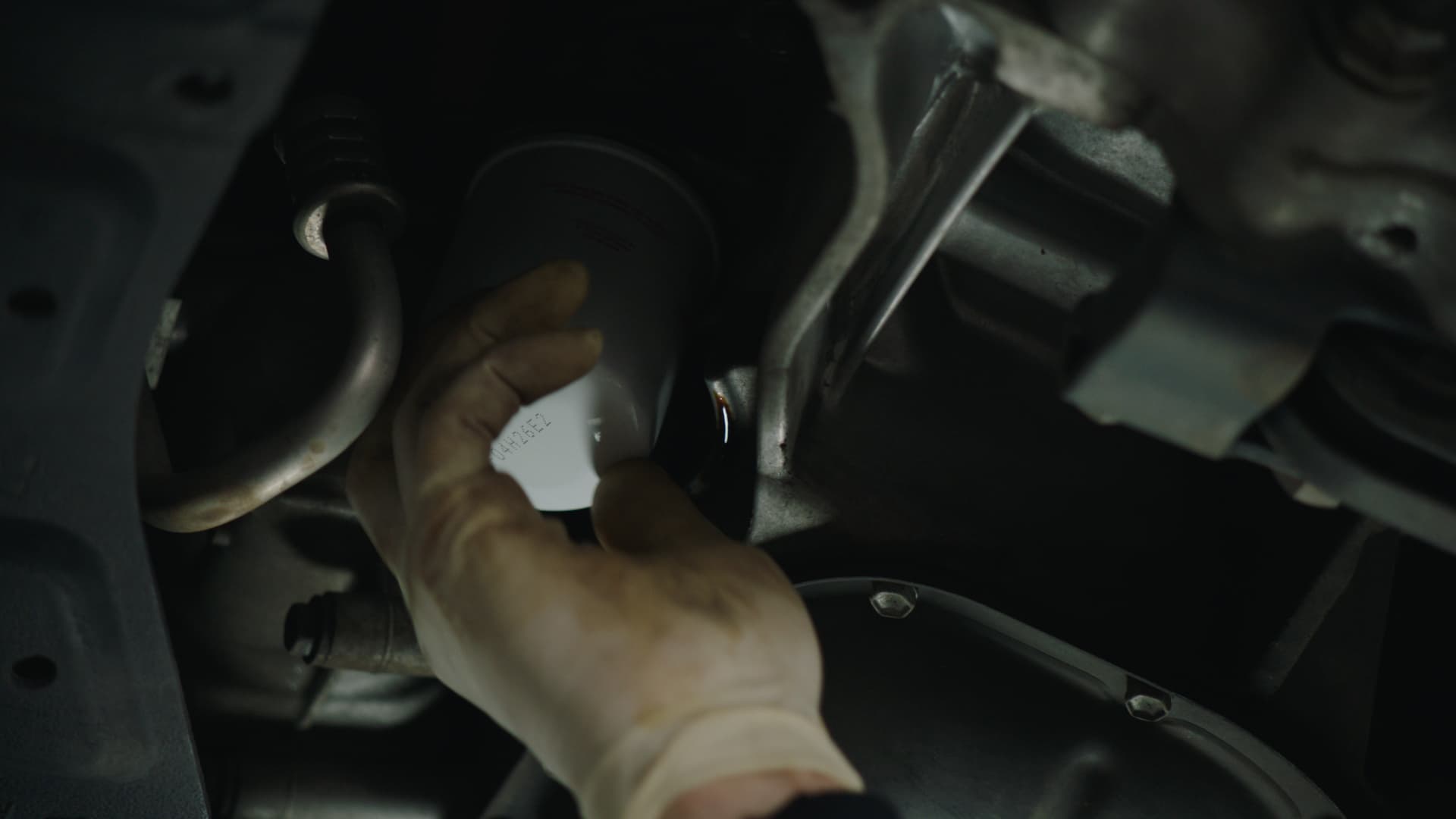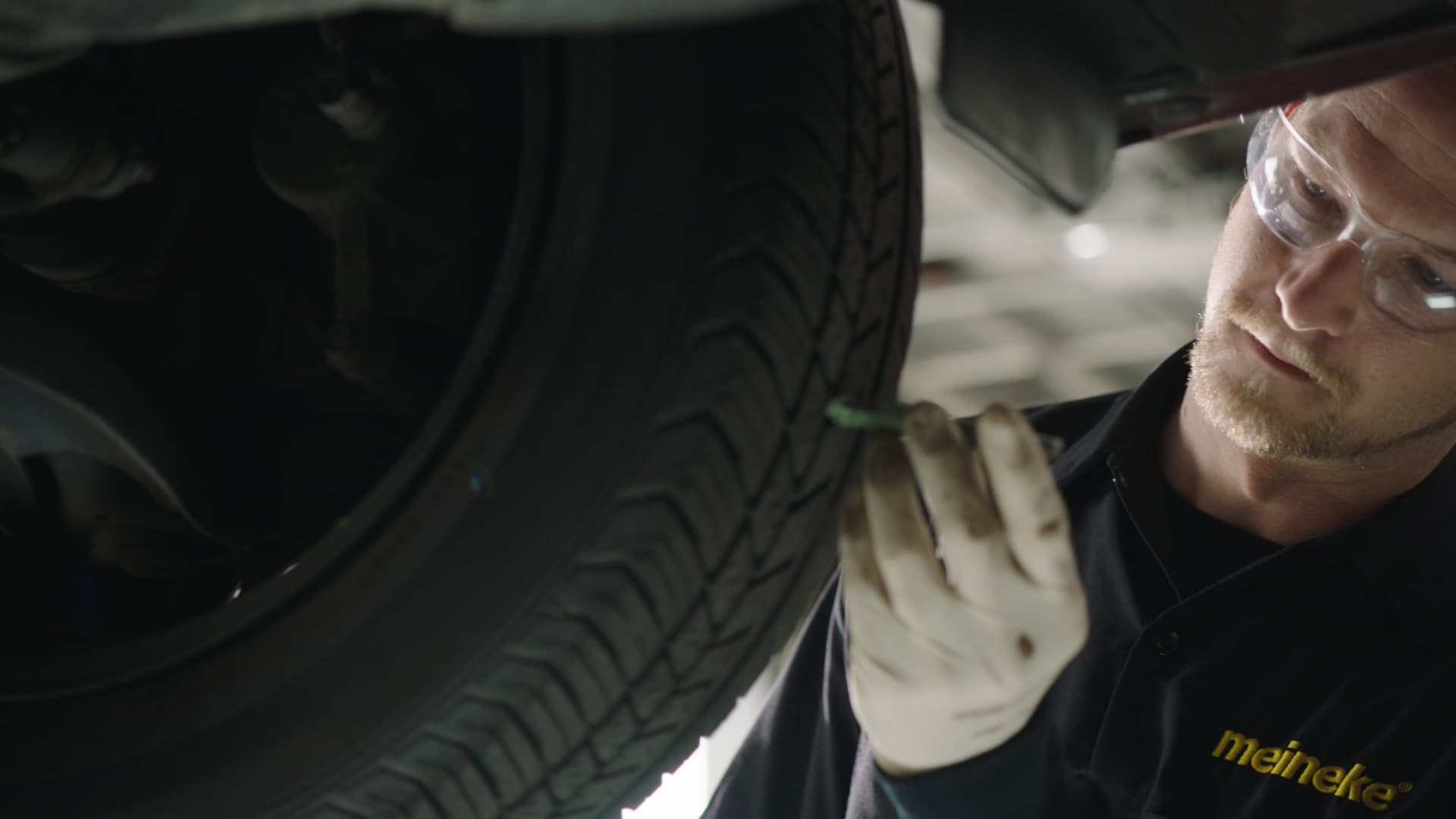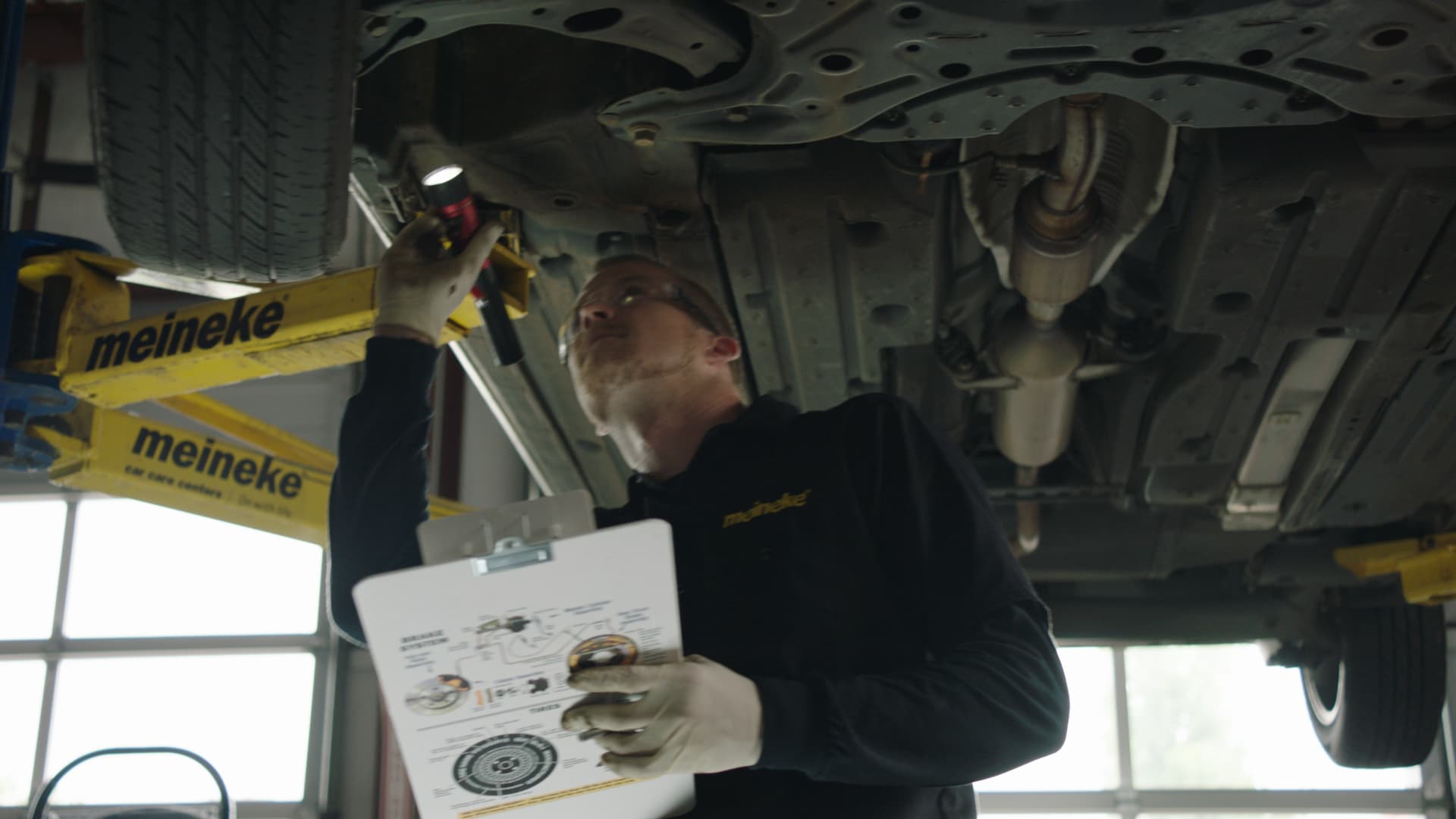Anti-Lock Brake System Inspections & Services
ABS Brakes are the most important safety component on your car. Anti-lock braking systems (ABS) have been standard in vehicles for more than 30 years and help provide stopping power when traction with the road is poor. If your ABS light is on or if you’re having trouble with your ABS system, Meineke can service abs systems, repair abs modules and inspect ABS computer systems on your car.
About Anti-Lock Brakes
Simply put, anti-lock brake systems, or ABS, keep wheels from locking up during hard braking situations that might cause the car to slide out of control. Under most conditions, anti-lock brakes allow the driver to stop the car in the shortest distance possible and maintain positive steering control. ABS is only counter-productive in snowy conditions.The sophisticated Antilock Brake System monitors the speed of each wheel and keeps them turning at the same speed by applying or releasing braking pressure to individual wheels. This is what causes the pulsating of the brake pedal when you make a hard stop. The result of a good anti-lock brake system is improved control over the vehicle, and less chance of skidding—especially on wet or slippery surfaces. ABS technology has become standard on virtually all automobiles, and it only grows more responsive and effective with each new generation of vehicles.
Anti-Lock Sensor Cleaning and Replacement
ABS technology needs regular inspection and maintenance from a qualified professional to function safely and reliably. One of the most common maintenance chores is cleaning the sensors that monitor wheel speed. These sensors are exposed to dirt and grime, and unclean sensors may cause improper functioning.It’s recommended that all vehicle owners make brake inspection part of their routine maintenance schedule—something to do along with oil changes or tire rotations. Having a qualified technician look at your ABS will ensure you’re getting the stopping power you need, and that you and your passengers will remain protected by your vehicle’s braking system.
How Anti-Lock Brakes Work
The Antilock Braking System relies on computer processors, the electrical system, and the hydraulic system to function. Essentially, the ABS technology takes threshold braking—practiced by skilled drivers of previous generations—and automates it, meaning that drivers of all skill levels can enjoy the same standards of safety.Maintenance-wise, fluid levels need to be maintained and seals and gaskets should be inspected and replaced if necessary. The processors and system voltage should also be checked to identify any malfunctioning components. It’s important to have your ABS brakes inspected regularly to ensure proper functionality and safety.
Need ABS System Help?
If you suspect your ABS system isn’t working correctly or if the ABS light on your dashboard is illuminated, it’s recommended that you take your vehicle to a certified Meineke technician who can properly diagnose and resolve the problem.
ABS Brake Service FAQs
- A:
Sensors on each wheel are used to evaluate if traction is being lost—and if so, it automatically engages a valve system within the vehicle that regulates the available brake fluid. This happens faster than any driver could apply the brakes.
- A:
There are different ways to check for problems with your ABS technology. Of course, when the ABS dashboard light comes on, that’s an obvious indicator that something is wrong. A slushy or unresponsive pedal is another sign that there’s a brake issue. Finally, be alert for grinding sounds when you apply the brake pedal, which indicates that you need brake servicing ASAP.
- A:
Any time you experience your ABS light coming on, or notice any odd noises when you apply the brake pedal, that’s a good indicator that you need a maintenance call. Usually, the ABS light means there is a problem with the wheel sensors, not the brakes themselves; grinding noises or bad response times, meanwhile, usually point to actual brake issues.
- A:
The presence of the ABS dashboard light usually means there is a problem with the sensor, but you can confirm this by looking at the sensor and seeing if there is any dirt or debris build-up; if so, the time to service your car is now.



